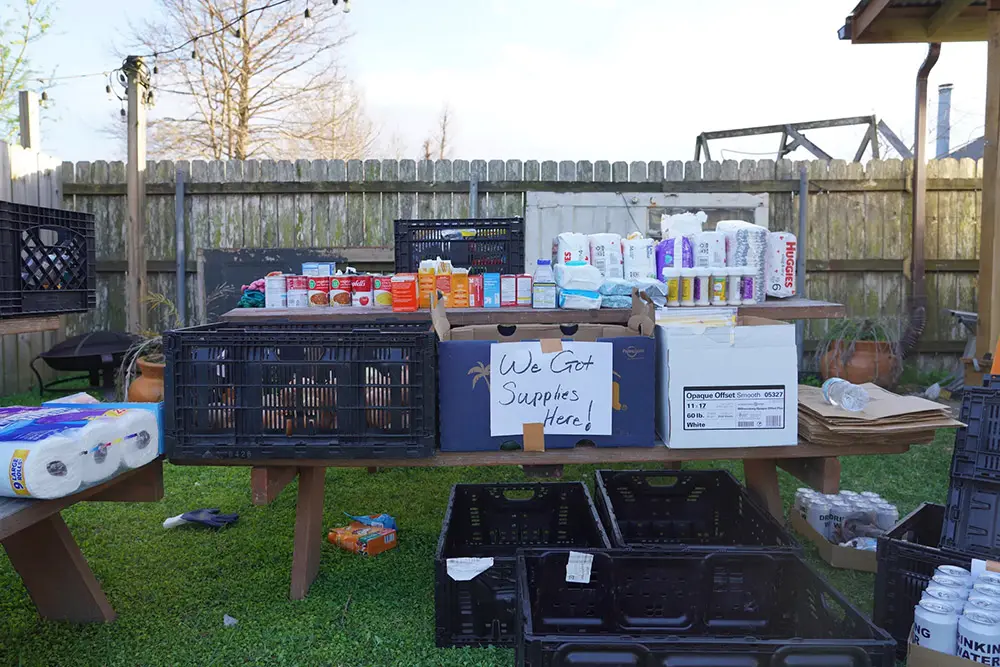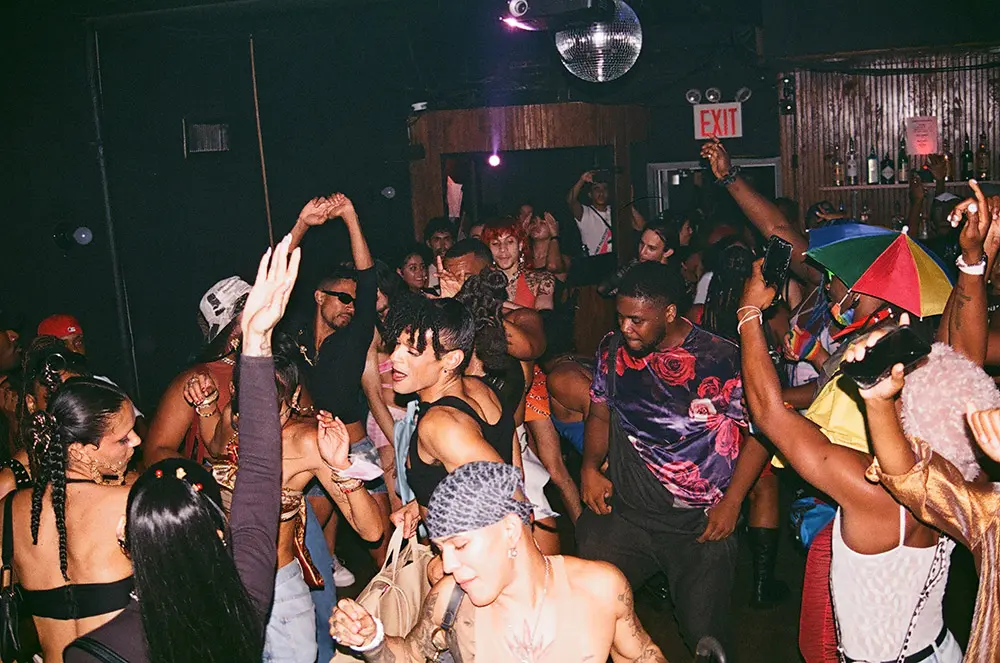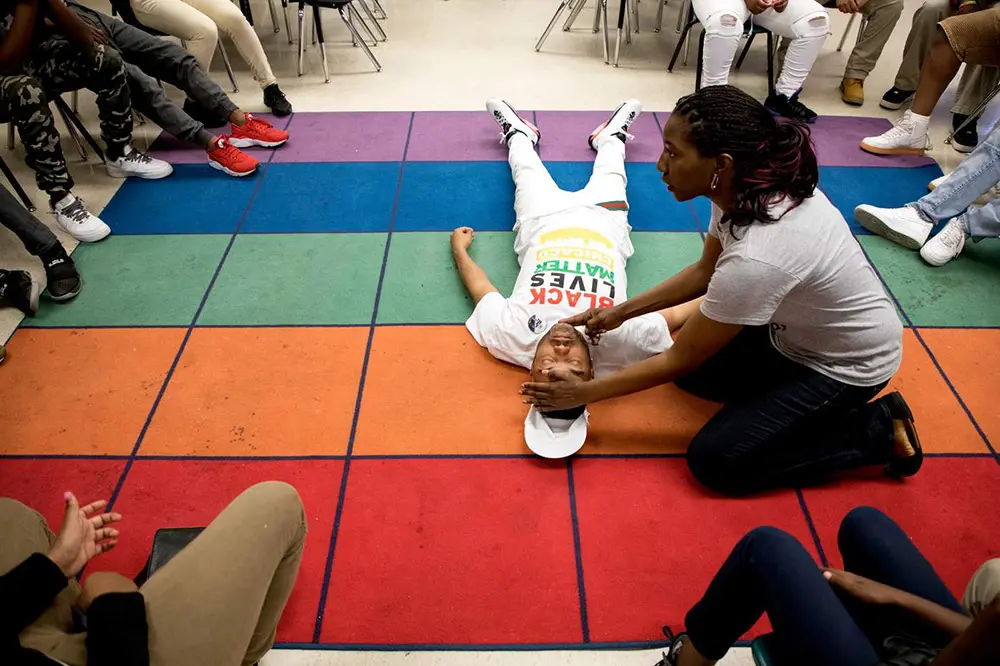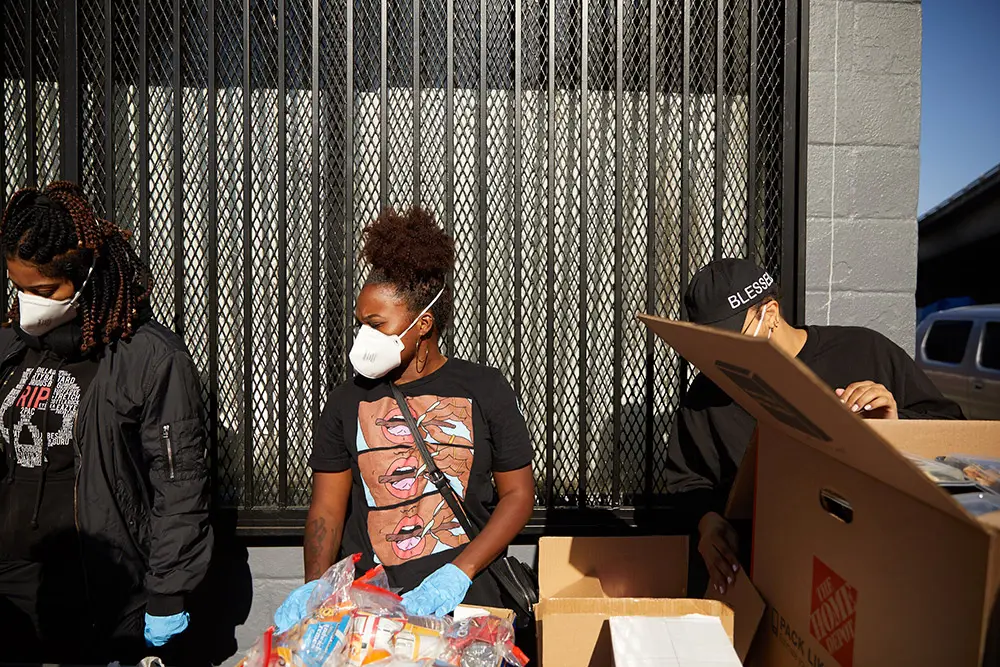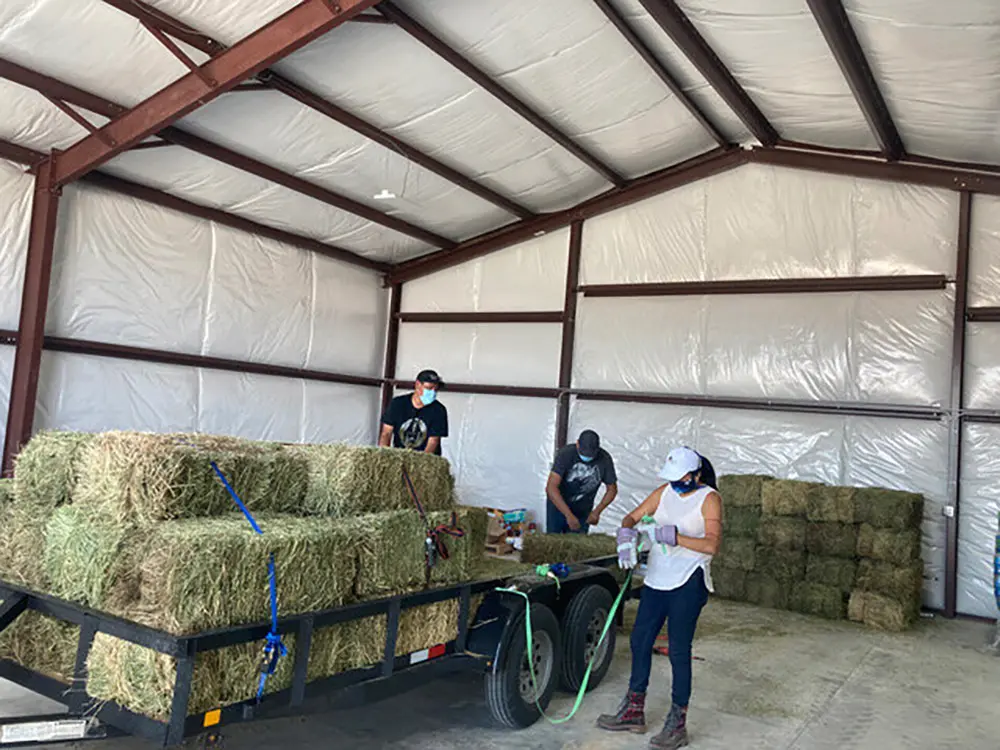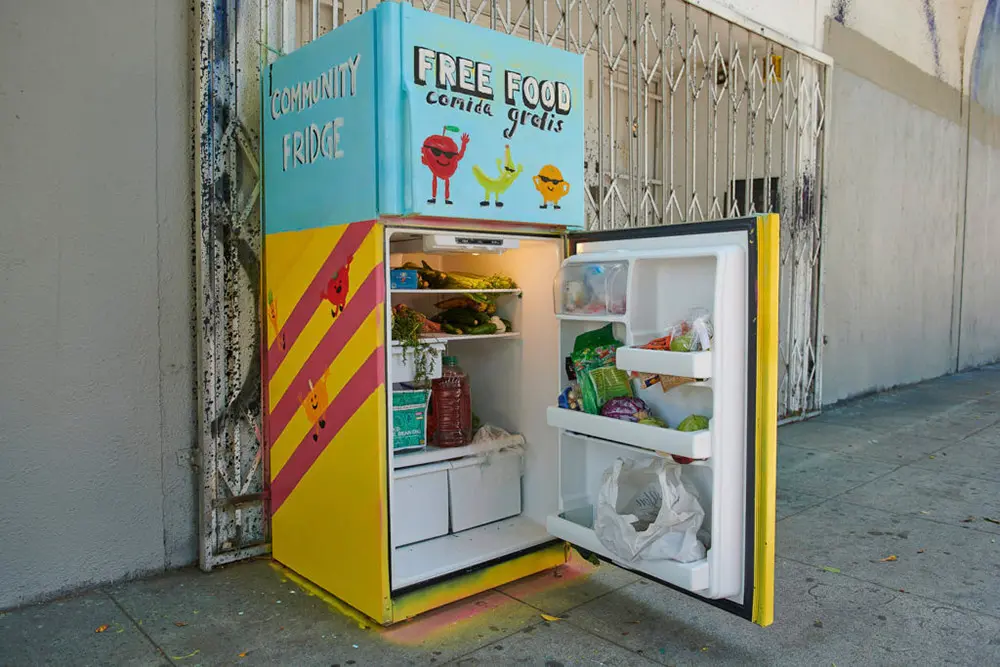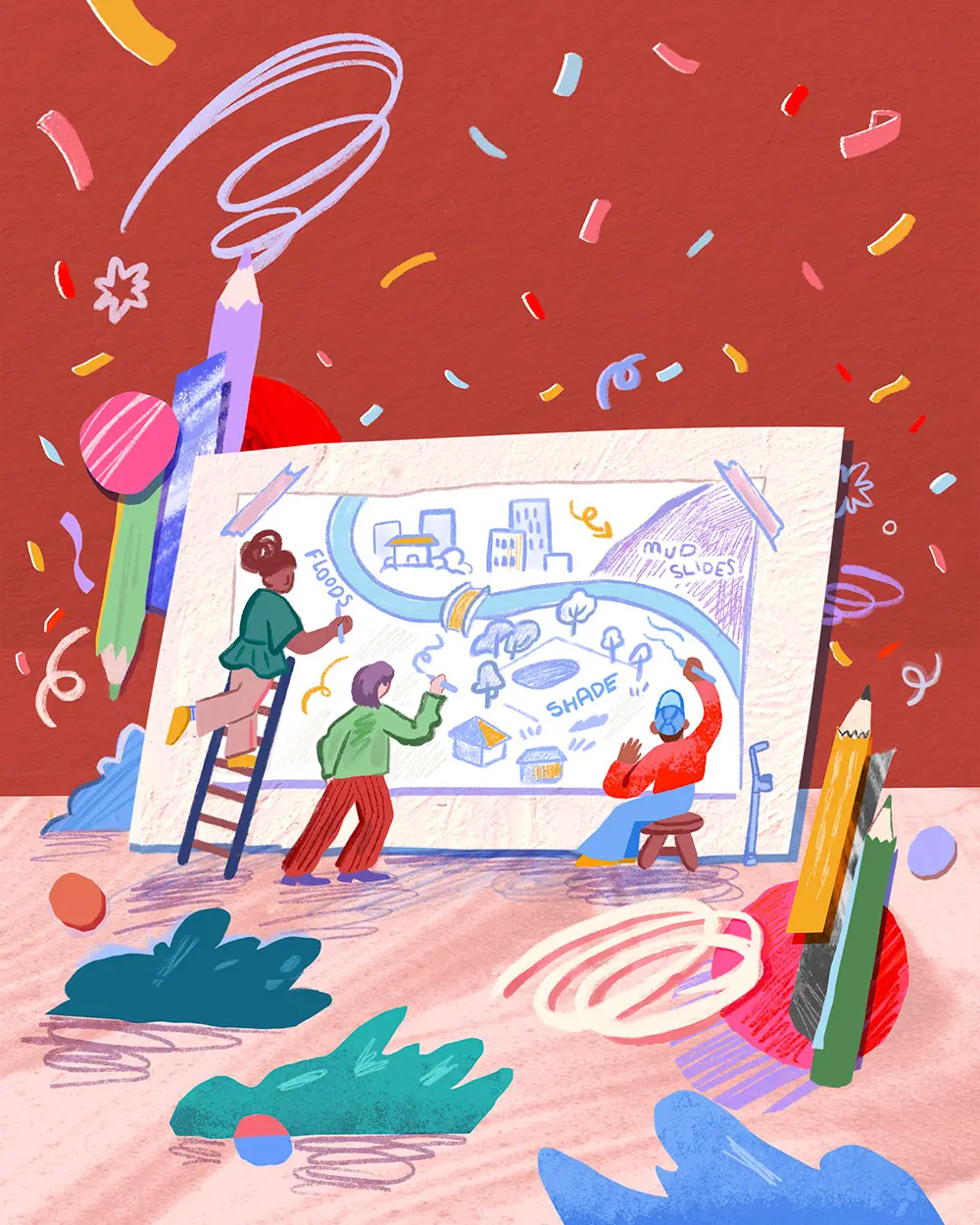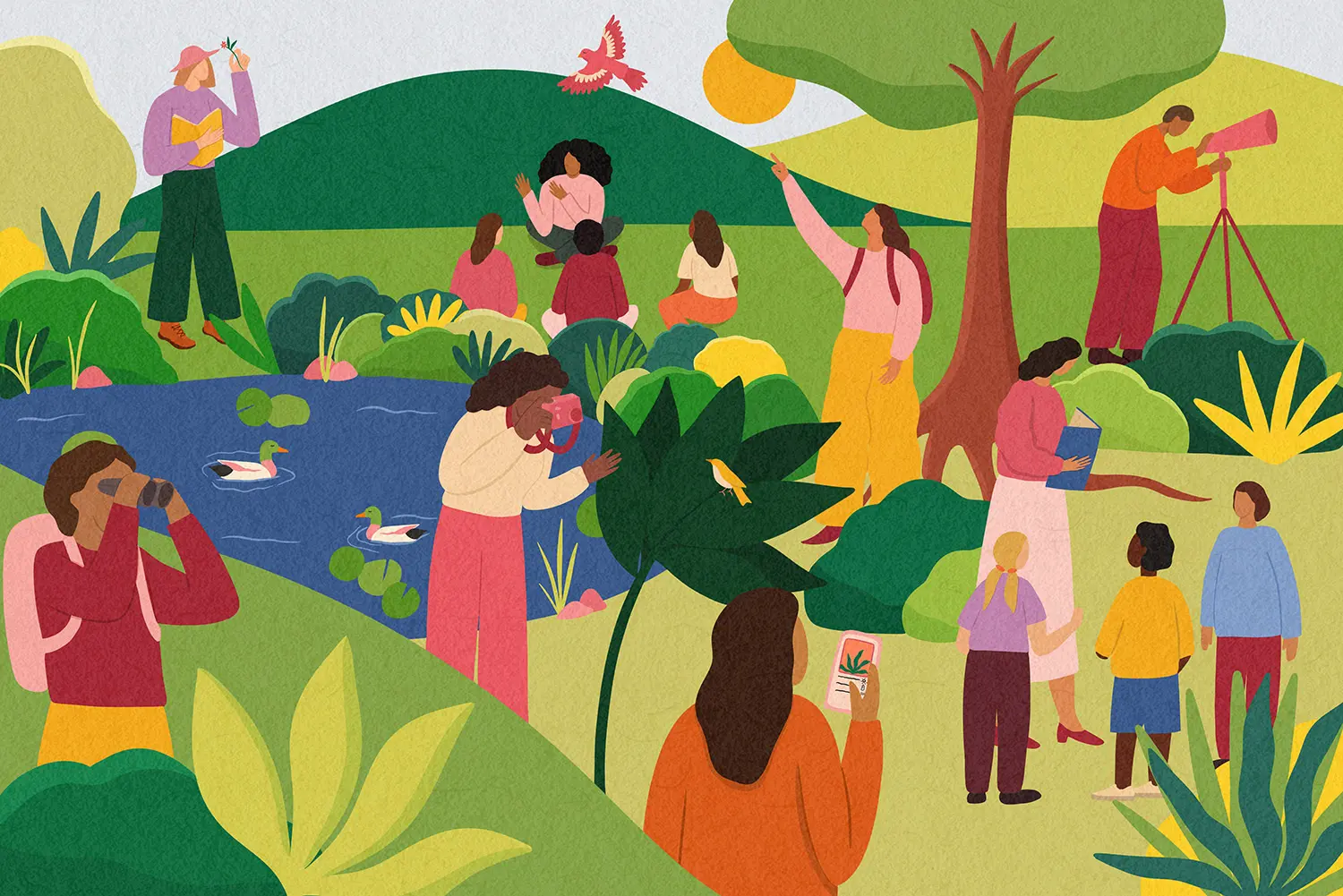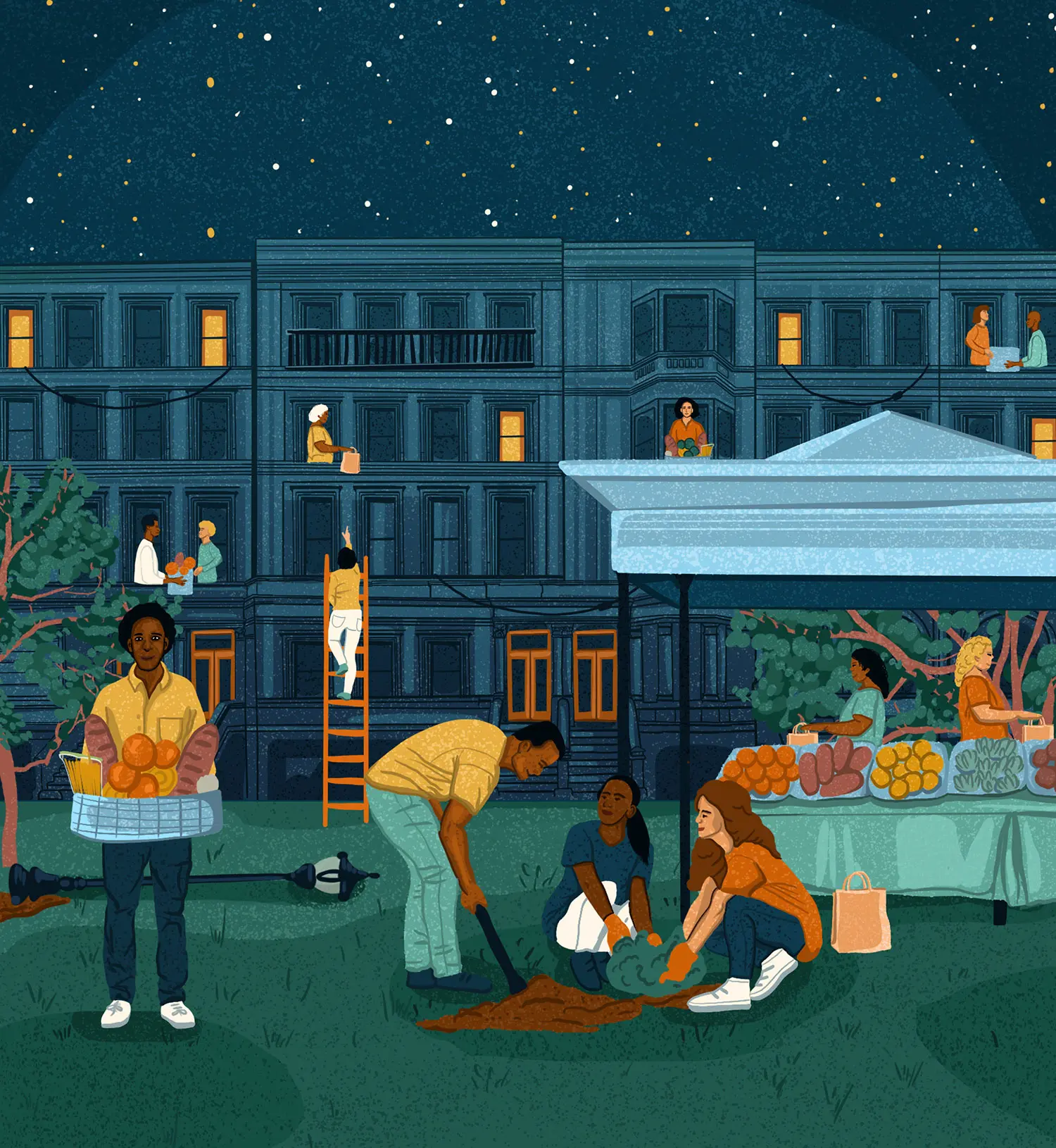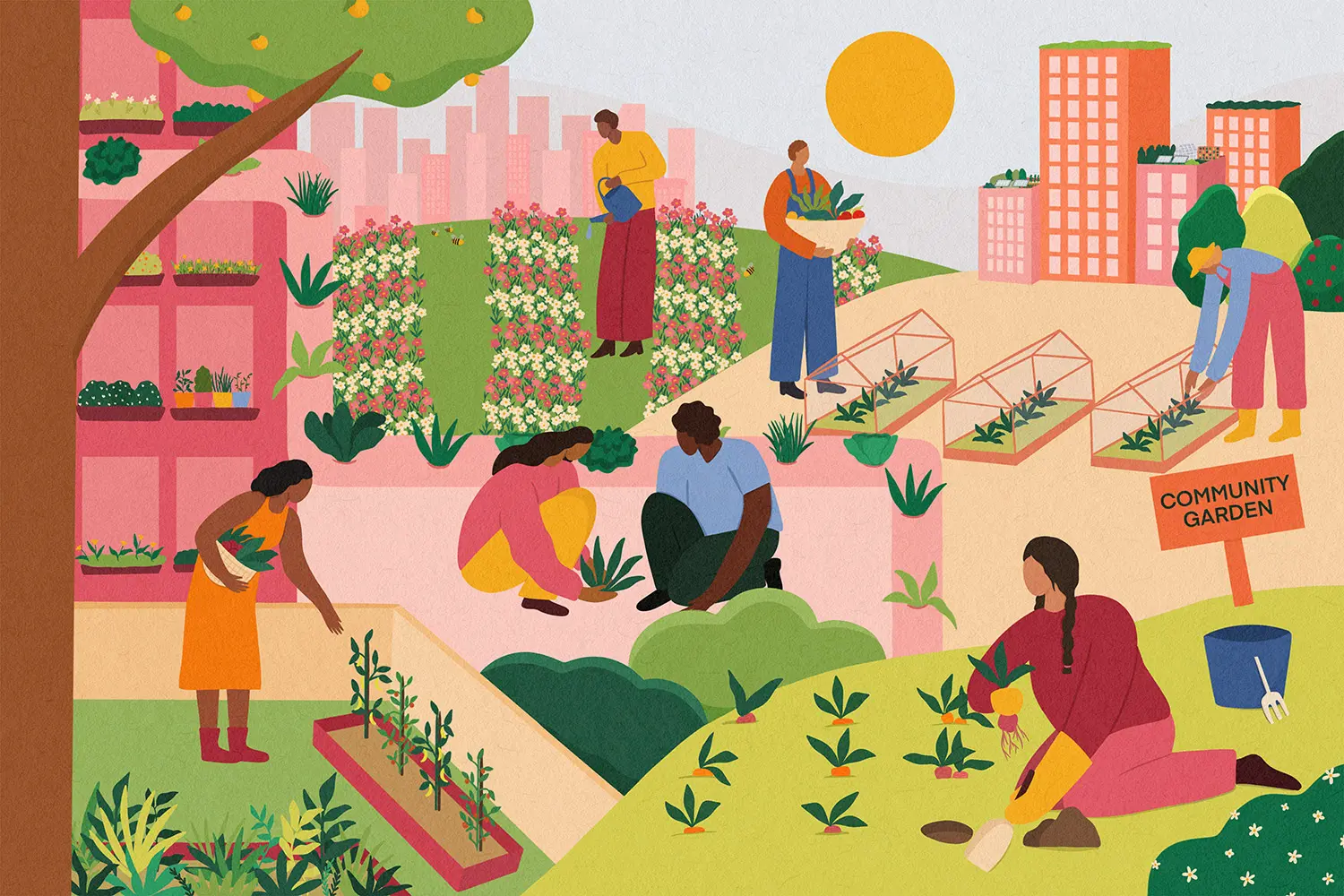Climate resilience as Mutual Aid
Mutual Aid is a powerful tool to:
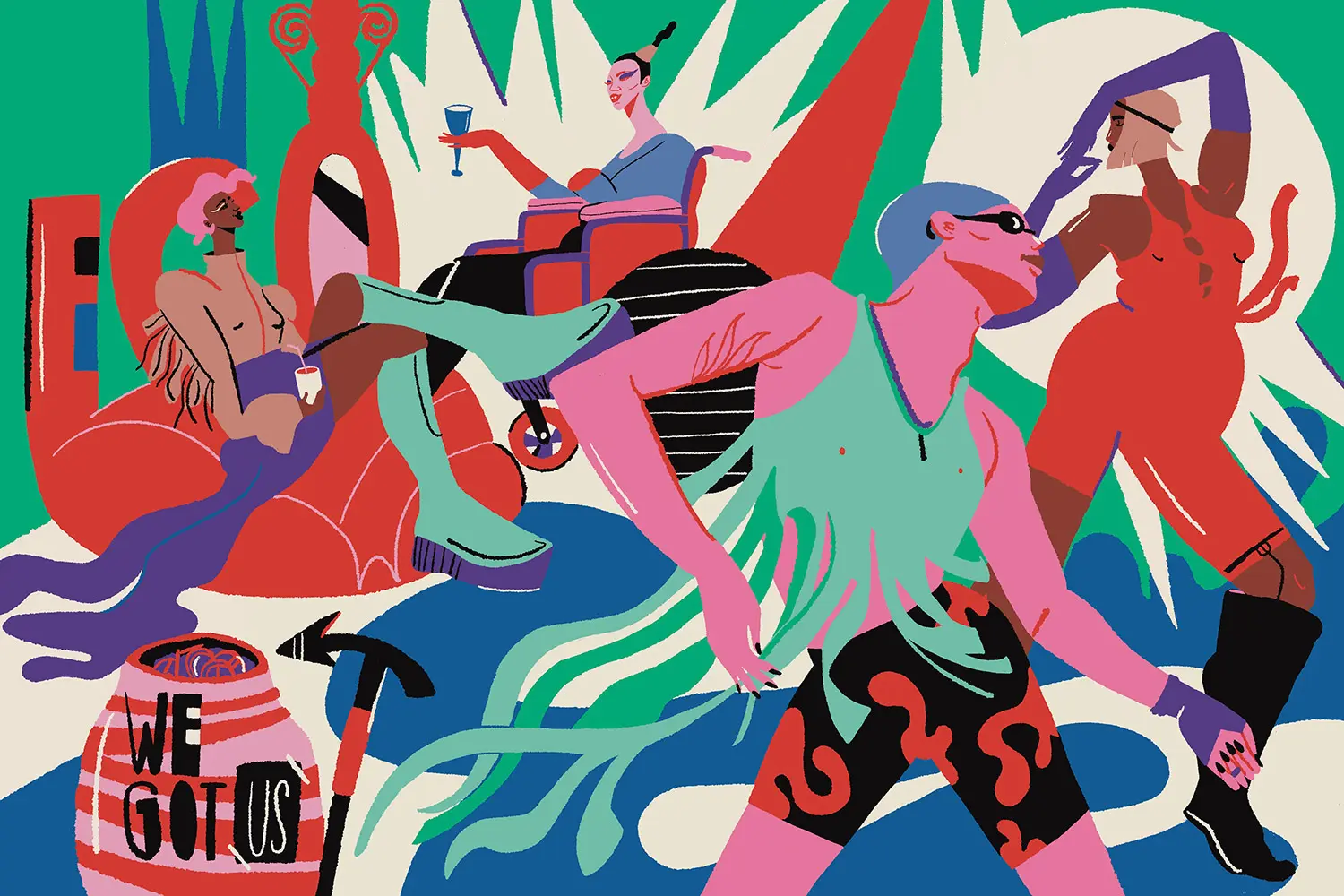
What it is: As organizer Dean Spade explains in his 2020 book Mutual Aid, “Mutual aid is collective coordination to meet each other’s needs, usually from an awareness that the systems we have in place are not going to meet them… This survival work, when done in conjunction with social movements demanding transformative change, is called mutual aid.” Mutual aid is distinctly different from charity or aid models, which generally involve wealthy individuals or government entities determining what services should look like and who is eligible to receive them. Charity and aid programs typically operate from a deficit-based perspective, rarely confront systemic issues, and are typically exceedingly insufficient if not actively harmful. Mutual aid projects, on the other hand, strive to radically redistribute resources and care while mobilizing community members, building shared understanding, and working to address the root of injustices. Projects are determined by community members and are rooted in a profound recognition of shared humanity and the abundance already present.
Mutual aid is the radical act of caring for each other while working to change the world. Dean Spade, legal activist, writer, and professor (source)
Some additional context: While the term mutual aid is relatively new, coined by nineteenth-century anarchist Peter Kropotkin after he witnessed animals of the Siberian wilderness collaborating with one another rather than competing for survival, the practice is ancient. Resource sharing, reciprocity, and collective care are ancestral concepts with Indigenous roots. Despite capitalism and colonialism disrupting these millennia-old practices, countless communities have found ways to keep networks of mutual aid alive to meet everyone’s needs through acute and long-term crises.
Continue readingMutual aid is grounded in our Indigenous teachings of supporting one another, especially during hard times. We know that like milpas, the care and dedication we provide to our community will always be reciprocated. Jessica Hernandez, Indigenous scientist and author (source)
Beginning in the late 1700s, Black communities across Turtle Island pooled resources to care for the sick, support widows and orphans, bury the dead, and provide education, health, and life insurance. Similarly, in the nineteenth and twentieth centuries, Latine communities in the American Southwest formed sociedades mutualistas to create alternatives to the public and private services that they were excluded from and to organize for higher wages. In the 1960s and 1970s, mutual aid projects were the backbone of many movements. Perhaps most notably, the Black Panther Party created dozens of survival programs, like free breakfast, education, medical clinics, rides for elderly folks, and more, where people could come together to get their basic needs met while building a shared analysis, forming meaningful relationships, and strategizing for action. The Young Lords Party for Puerto Rico liberation utilized a similar approach, and even occupied hospitals, churches, and vacant land across Chicago to care for their people and make demands of the city. Beginning in the 1980s, as the state failed to respond to the HIV/AIDS epidemic, queer communities mobilized to create health clinics and provide practical and emotional support to one another while organizing to inform the public, fight discrimination, and demand treatment. Similarly, in the past few years, as the government failed to adequately respond to the Covid-19 pandemic, anti-Black racism, and police violence, mutual aid networks proliferated and gained mainstream recognition. Neighborhoods and affinity groups have banded together to help one another pay rent, get groceries, cover protestors’ bail, and more.
Continue readingWhy it’s a climate resilience powerhouse:
Caring for our communities amid crisis
Mutual aid is perhaps one of the most powerful tools that we have at our disposal to keep our communities safe, nourished, and wholly cared for through both the slowly simmering harm and major disasters that the climate crisis and interrelated crises bring. In contrast to the inadequate and often harmful assistance that government agencies, large charitable organizations, and corporations tend to provide before, during, and after disasters, mutual aid efforts are (ideally):
- Nimble, adaptable, and responsible to what’s happening on the ground;
- Rooted in autonomy, dignity, and trust. Instead of dictating what people will receive, mutual aid allows for people to dictate what they need most without shame or judgment;
- Aware of and sensitive to historical and cultural context and complexities on the ground;
- Accountable to the people with whom they’re in relationship, not corporate interests;
- Active long before and long after disaster strikes;
- Intended to redistribute resources in order to mitigate, rather than reinforce, inequality;
- For everyone- nobody is excluded on the basis of citizenship, insurance status, zip code, disability, illiteracy, race, class, sexuality, gender, etc.;
- Free of complicated paperwork that few people have the time, bandwidth, or experience to navigate, particularly during/after a crisis;
- And focused not just on meeting immediate needs, but also on organizing to change the root conditions that caused or amplified disaster in the first place.
Continue reading
Practicing new ways of meeting one another’s needs
It’s just as important and powerful to practice mutual aid in moments that don’t feel as urgent or characterized by crisis. As Dean Spade says, “At its best, mutual aid actually produces new ways of living where people get to create systems of care and generosity that address harm and foster well-being… Mutual aid projects let us practice meeting our own and each other’s needs, based in shared commitments to dignity, care, and justice.” The more that we are able to practice meeting one another’s needs together, the more we:
- Center values of reciprocity, shared humanity, community-driven care, interdependence, and redistribution in our daily lives;
- Move away from myths of scarcity and rugged individualism;
- Figure out how to make decisions, share things, and navigate through messiness together;
- Build and strengthen relationships with other community members;
- Cultivate a shared political understanding around why current systems are inadequate and cause harm;
- Witness that ways of meeting our collective needs beyond capitalism are possible (and already in existence!);
- Learn about one another’s unique offerings/needs;
- And on and on.
So, when we practice engaging in mutual aid, we’re better positioning ourselves to be able to prepare and care for one another through the next hurricane, leap into action at the next legislative attack, or mobilize to meet one another’s needs during the next pandemic. When we practice engaging in mutual aid, we’re better positioning ourselves to be able to truly reject the extractive and exploitative political and economic systems that are at the root of the climate crisis (and intertwined crises) and build alternatives rooted in regeneration, cooperation, and care.
Continue readingPracticing mutual aid is the surest means for giving each other and to all the greatest safety, the best guarantee of existence and progress, bodily, intellectual and moral. Pyotr Kropotkin, anarchist, historian, scientist, philosopher, and activist (source)
The nuance / caveats:
Dean Spade explains in Mutual Aid that “mutual aid groups face four dangerous tendencies: dividing people into those who are deserving and undeserving of help, practicing saviorism, being co-opted, and collaborating with efforts to eliminate public infrastructure and replace it with private enterprise and volunteerism.” To resist these pitfalls:
- Make sure that you’re building participatory, transparent, and intentional decision-making structures from the get-go, and check out Spade’s Mutual Aid for a comprehensive guide to doing so.
- Keep in mind that mutual aid works best when projects are relatively small (scaling up and out should not be the goal), place-based, and decentralized, but that doesn’t mean we can’t learn from and support other projects; the Trans Clippers Project (see below) being adopted in dozens of other locations is a perfect example of that; Imagine Water Works was transparent with their efforts so that their processes could be easily replicated and customized elsewhere.
- Prioritize fun, connection, authenticity, and space for healing to minimize burnout, attract new folks, and ensure that existing folks can stick around for the long haul. Some of the most well-known mutual aid efforts today, like For the Gworls, a Black- trans-led collective that fundraises for their community by curating epic parties (see below), have flourished precisely because they have made joy, art, relationship, and sense of belonging central to their efforts.
Spotlights
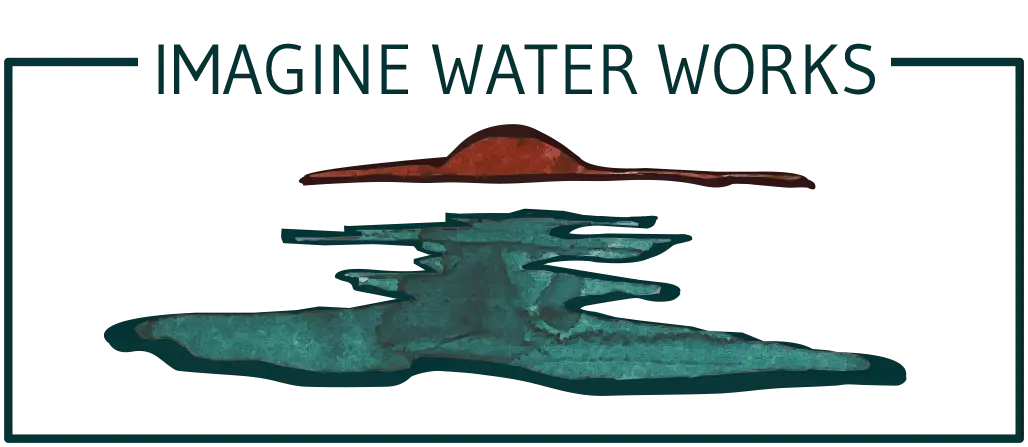
Imagine Water Works is a New Orleans, Louisiana-based organization focused on climate justice, water management, community organizing, and disaster response. A few years ago, they were called upon by Project South and Southern Movement Assembly to begin cultivating a mutual aid response network which would exist online and in person and would be a part of a larger web of mutual aid efforts across the Deep South. Since then, their Mutual Aid Response Network has led powerful preparedness, relief, and recovery efforts before, during, and after floods, storms, and other disasters across the state of Louisiana. Their mutual aid efforts are rooted in reciprocity and collective care, honor the region’s rich mutual aid history, and are truly dictated by the needs of the people. For instance, during the pandemic, Imagine Water Works’s trans-led team responded to a request for a haircut in one of their local mutual aid groups by creating the Trans Clippers Project, a program to connect transgender, nonbinary, and two-spirit individuals with electric hair clippers and trimmers to help alleviate gender dysphoria, misgendering, and threats to personal safety while barbershops and salons were shut down. Like many great mutual aid projects, the Trans Clipper Project began in New Orleans but blossomed into a decentralized network of similar programs in dozens of cities around the world.
You can support Imagine Works by making a recurring monetary donation. If you’re based in Louisiana, join one of their regional “Imagine Mutual Aid” groups on Facebook.
Continue reading about Mutual Aid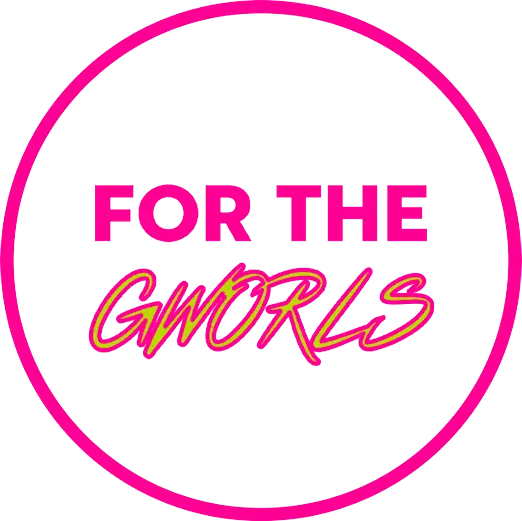
For the Gworls is a Black, trans-led, Brooklyn-based collective that curates epic parties to fundraise money to help Black trans people pay for their rent, gender-affirming surgeries, co-pays for doctor visits and medicine, and travel assistance. For the Gworls parties also provide a safe haven for Black trans folks to show up fully as they are. Founder and Head Doll in Charge Asanni Armani explains that “they see the club as a safe haven for Black transgender people, and by extension, believe that it should be used as a tool to sustain Black trans livelihood.” Since Assani threw the first unofficial For the Gworls party in 2019 to help raise funds for friends facing eviction, the collective has managed to raise and redistribute over $2 million. They’ve also launched innovative initiatives like Laced Together, connecting trans folks with free-quality wigs.
You can support For the Gworls by setting up a recurring donation to their Rent and Gender-Affirming Surgery Fund and/or Medical Assistance Fund and staying abreast of upcoming events and merchandise via their Instagram.
Continue reading about Mutual Aid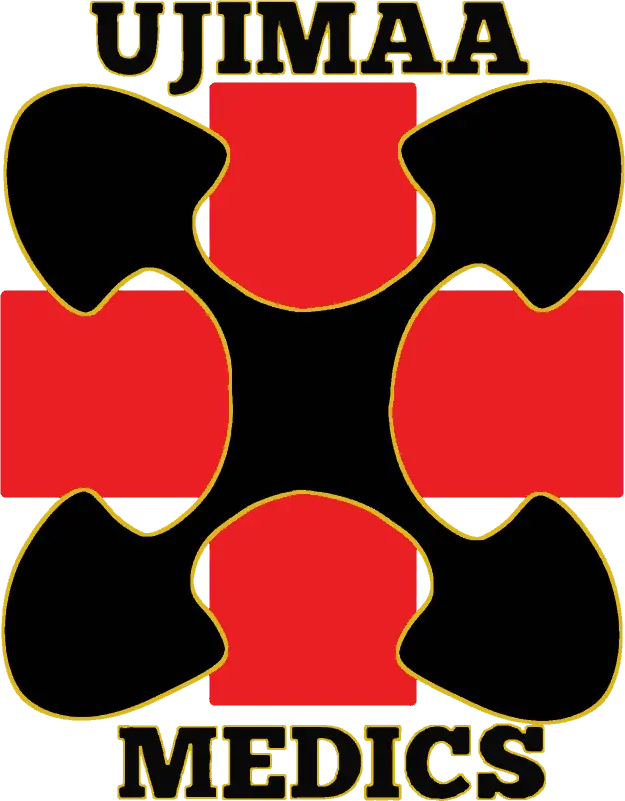
Ujimaa Medics is a collective of Black community organizers, activists, pastors, healthcare professionals, and community members living in neighborhoods of South and West Side Chicago that are particularly impacted by gun violence. The collective emerged in 2014 after another young community member was lost to gun violence when he didn’t receive the medical help that he needed quickly enough. People knew that they could no longer afford to keep waiting for medical professionals to arrive to do something, so Ujimaa (a Swahili word for collective work and responsibility) Medics was created to offer Urban Emergency First Response trainings, particularly around navigating gun violence; how to stay safe, help the injured, manage the chaos, and keep folks safe if/when police and paramedics arrive. They’ve since hosted more than 100 public workshops and trained over 1000 people, and several workshop attendees have used their training to successfully stabilize gunshot victims.
You can support Ujimaa Medics by making a monetary donation. If you’re based in Chicago, you can request an in-person training workshop for a group or organization that you’re involved with (between 5-60 people), and if you’re not based in Chicago, you can still request an online training workshop for first response training in asthma community care, protestor health and safety, or community safety planning.
Continue reading about Mutual Aid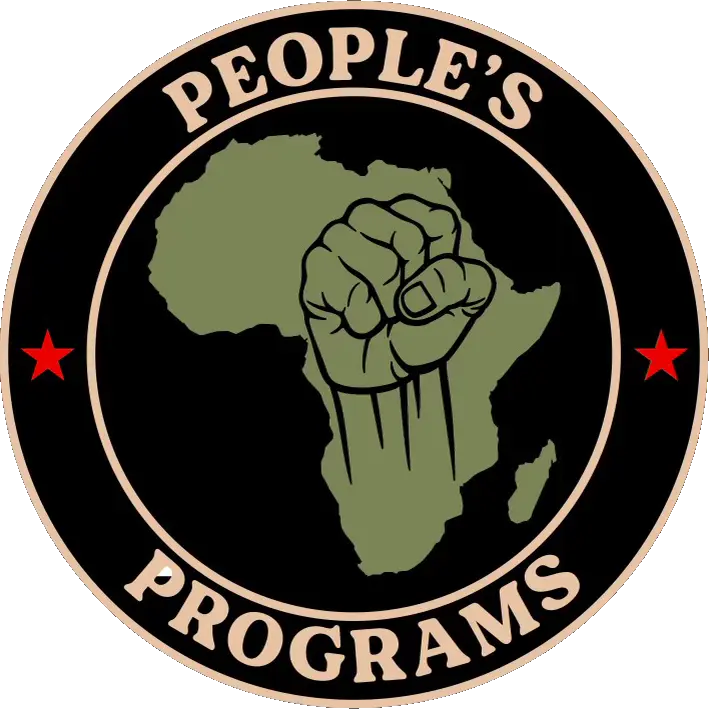
People’s Programs is an Oakland-based, Black/New African organization honoring the legacy of the Black Panther Party with programs like People’s Breakfast, People’s Garden, and People’s Community Mobile Health Clinic, along with political education, legal support and bail, and more. In 2022, they served nearly 20,000 meals, distributed nearly 10,000 hygiene packs and masks, provided consistent, holistic health care for houseless communities in West Oakland via their mobile health clinic, hosted 140 workshops and workdays in their community garden, distributed thousands of boxes of produce harvested from their garden, and more. People’s Programs is also working on a multimedia book/film/art/podcast project, Tales of the Town, as a love letter to the last century of Black history, resistance, and activism and Oakland, as well as a form of contemporary political and cultural education.
You can get involved with People’s Programs by volunteering, making a donation, or plugging into one of their upcoming community learning events.
Continue reading about Mutual Aid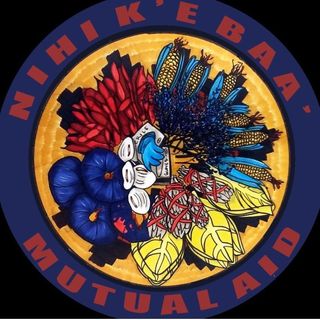
Níhi K’é Baa’ Mutual Aid is a collective of grassroots Diné organizers working to restore tribal health, reclaim cultural knowledge, build traditional housing, and resist fossil fuels on the Navajo Nation and beyond. Organizers Kim Smith and Makai Lewis seeded Níhi K’é Baa’ Mutual Aid (which translates to “for our relatives” in Diné) in 2015 in order to help create a healthy and viable future for their people. Since then, they’ve led countless community projects across their homelands and have also worked in solidarity with other Indigenous communities at direct action camps and events across Turtle Island. During the pandemic, they were able to nimbly pivot to focus on redistributing food, water, firewood, and other important necessities. They’re currently in the fourth year of a beautiful watershed restoration project, “Love on the Island,” which includes building an incredible off-grid community kitchen and gathering space using traditional Indigenous building techniques.
You can support Níhi K’é Baa’ Mutual Aid by sending a Venmo (@For-Our-Relatives ) or PayPal (@nihikebaa) donation. If you live in the Four-Corners area, follow their Instagram to learn about upcoming Solidarity Work Parties for Love on the Land restoration and building efforts.
Continue reading about Mutual AidLA Community Fridges is a decentralized network of community refrigerators and pantries across Los Angeles. The network, which was developed around values of trust, equality, resource redistribution, community, and mutual aid, explains on their website, “We believe a community knows what’s best for themselves. We also know that every location is unique and has different needs. The way we work is simple: we provide a scalable, repeatable framework to get refrigerators up and running for the communities that want them, so that they may work autonomously to support the needs at hand.” Community members are empowered and trusted to keep fridges and pantries stocked and clean and to take food and other vital supplies as they need it.
To plug into the LA Communities Fridges network, explore their detailed map of fridge locations (including regular updates regarding what’s stocked there, what’s needed, and more), learn more about how to get involved via their FAQ page, sign up for a cleaning shift, or join their Slack channel to stay in contact with the LA Community Fridges community and become a regular volunteer.
Continue reading about Mutual AidResearch + reflection prompts:
- Make a list of the communities that you’re a part of. How have they historically practiced collective care, resource sharing, and reciprocity?
- Are there any mutual aid efforts underway in communities that you share a common experience or location with? Platforms like org and itsgoingdown.org are great places to begin your search, as are the newsletters from grassroots organizations, the social media accounts of local organizers, and the bulletin boards at local collectives and cooperatives.
- How might you incorporate mutual aid principles into the communities and movements that you’re already engaged with?
- What do you have in abundance that you can share, and what are you lacking or needing that your community might be able to help provide?
How to get engaged:
Local food sharing
If you have access to time and a passion for food: Consider getting involved in a local food sharing initiative, like a community fridge or pantry. There are countless roles needed to keep community fridges operating smoothly, so inquire about the type of support needed and consider what makes the most sense for you. This might look like signing up for a weekly slot to clean out the fridge, dropping off groceries or produce from your garden on a regular basis, offering to liaise between local farms or bakeries to transport high-quality donations, or cooking large batches of your favorite nourishing dishes to stock the fridge with premade, individually portioned meals. If you have the bandwidth, you might even consider starting a new food sharing initiative in your community. Online sources like org offer comprehensive guides to building a community fridge program. As always, don’t go it alone; involve as many community members as possible, and try to connect with folks who have done it before themselves.
Financial resources
If you have access to financial resources: Move money to mutual aid efforts on a regular basis. This may look like setting up recurring donations online or holding yourself accountable to a weekly practice and transferring funds directly to individuals or groups that request financial assistance via social media.
Local network
If you have access to a robust local network: Activate your people to tap into existing mutual aid networks. Gather your pals to attend an orientation or meeting together and hold one another accountable to show up consistently when your support is needed. Or act as a liaison between mutual aid hubs and folks in your community in need of certain resources. Help distribute goods or connect folks to support during and after disasters.
Shareable Skills
If you have shareable skills: There are a multitude of types of mutual aid initiatives and therefore a multitude of different skill sets and passions needed. Whether you practice acupuncture or love to organize logistics, have a background in law or can translate conversations, design beautiful graphics or are a fantastic listener, there is a place in the constellation of mutual aid efforts where your gifts will be deeply appreciated.
A smattering of resources for continued learning + action:
Short Reads
- “The Growing Role of Mutual Aid” by Tanya Gulliver-Garcia in Nonprofit Quarterly
- “The Future is Mutual” by Jaydra Johnson in Atmos
- “What is Mutual Aid? A Primer by the Climate Justice Alliance” by Climate Justice Alliance in Medium
- “‘Solidarity, Not Charity’: A Visual History of Mutual Aid” by Ariel Aberg-Riger in CityLab
- “So You Want to Get Involved in Mutual Aid” by Amanda Arnold in The Cut
- “Solidarity Not Charity; Mutual Aid for Mobilization and Survival” by Dean Spade in Social Text 142, Vol. 38, No. 1
- “8 Black Panther Party Programs That Were More Empowering Than Federal Government Programs” by Nick Chiles in Atlanta Black Star
- “Mutual Aid: A Grassroots Model for Justice and Equity in Emergency Management” by Miriam Belblidia and Chenier Kliebert in Justice, Equity, and Emergency Management
- “Social Connections Save Lives During Climate Emergencies” by Yvonne S. Marquez in Yes Magazine
- “When Chinese-Americans Were Blamed for 19th Century Epidemics, They Built Their Own Hospital” by Claire Wang in Atlas Obscura
Long Reads
- ★ Mutual Aid: Building Solidarity During This Crisis (and the Next) by Dean Spade
- The Revolution Will Not Be Funded; Beyond the Non-Profit Industrial Complex by INCITE! Women of Color Against Violence
- Before AIDS: Gay Health Politics in the 1970s by Katie Batza
- Body and Soul: The Black Panther Party and the Fight against Medical Discrimination by Alondra Nelson
- The Young Lords: A Radical History by Johanna Fernandez
- Mutual Aid: A Factor of Evolution by Pyotr Kropotkin
- The Future is Disabled: Prophecies, Love Notes and Mourning Songs by Leah Lakshmi Piepzna-Samarasinha
Watch
- What is Mutual Aid? A short Youtube video that introduces the concept of mutual aid, why it’s important, and what it can look like in practice
- The History and Impact of Mutual Aid in America: Then & Now: A short video that takes a look at the historical origins of mutual aid projects in the United States.
- The Black Panthers: Vanguard of the Revolution: A 2015 documentary film written and directed by Stanley Nelson Jr. to tell the story of the rise and fall of the Black Panther Party
- I’m You, You’re Me: A short 1992 documentary that captures the work of women in New York State prisons supporting each other with a range of issues, especially around HIV/AIDS, during imprisonment and after release.
- The Response: How Puerto Ricans Are Restoring Power to the People: A short 2019 documentary that explores how mutual aid centers sprung up around Puerto Rico in the wake of Hurricane Maria with the ultimate goal of restoring power to the people.
- Takeover: How We Occupied a Hospital and Changed Public Health Care: A short 2021 documentary that tells the story of the Young Lords’ 12-hour occupation of Lincoln Hospital in the South Bronx in 1970.
- Highlander History and Principles of Mutual Aid: A recording of a webinar hosted on Facebook by the Highlander Center
Listen
Engage More Deeply
- Dean Spade created a companion Teaching Guide for his book Mutual Aid. His many discussion questions, assignments, in-class exercises, group project prompts, recommended reading list, and more are a phenomenal resource to bring back to your classroom, book club, organization, or own journal.
- Explore the myriad curated resources for deeper learning, engagement, and action available at Big Door Brigade
- If you’re helping to organize a mutual aid group, check out this Mutual Aid Legal Toolkit put together by Sustainable Economies Law Center
